What’s the first thing the audience notices about your blog?
More often than not, it’s your domain name.
One of the most important steps in building a successful blog is to choose a domain name. It’s not just a web address; it’s the foundation of your online identity.
A well-chosen domain name helps establish your brand, convey your blog’s purpose, and make a lasting impression on your audience.
In this post, we’ll discuss how to choose a domain name that not only suits your blog but also supports your growth and success.
So, without any further ado, let’s get started.

Table Of Contents
1 Why is Domain Name Important?
A domain name is essential because it serves as the address of your blog, allowing visitors to access your content.
Just like a physical storefront, your domain name is the first thing your audience will notice, and it significantly influences their perception of your blog.
A strong, memorable domain name builds credibility and trust, while confusion or difficulty can drive potential readers away.
Also, a well-thought-out domain name boosts your search engine rankings by making it easier to understand what your blog is about. It can also increase the likelihood of your site being clicked when it appears in search results.
On the other hand, overly generic names or keyword-stuffed domains may not perform as well in search engines or appeal to your target audience.
A concise, relevant domain strengthens your blog’s brand identity and supports long-term growth by making it more accessible to readers and search engines alike.
2 How to Choose a Domain Name
Choosing a domain name for your blog is an important step in establishing your online presence. It requires thoughtful consideration to ensure that the name not only reflects your blog’s identity but also helps attract and retain visitors.
Here are some key elements to consider when you choose a domain name for your blog.
2.1 Be Descriptive
First, keep it simple, descriptive and memorable. An easy-to-pronounce domain name is more likely to stick in people’s minds and be easily shared.
For instance, if you’re creating a fitness blog, a name like ‘FitJourney.com‘ is clear, descriptive, and relevant. Avoid using long or complex names with tricky spellings, confusing readers or leading to typing errors when visiting your site.
Next, ensure that your domain reflects your blog’s niche or purpose. Visitors must understand what your blog is about just by looking at the domain name.
For example, an eco-friendly blog like ‘greencitizen.com’ instantly communicates your content focus.
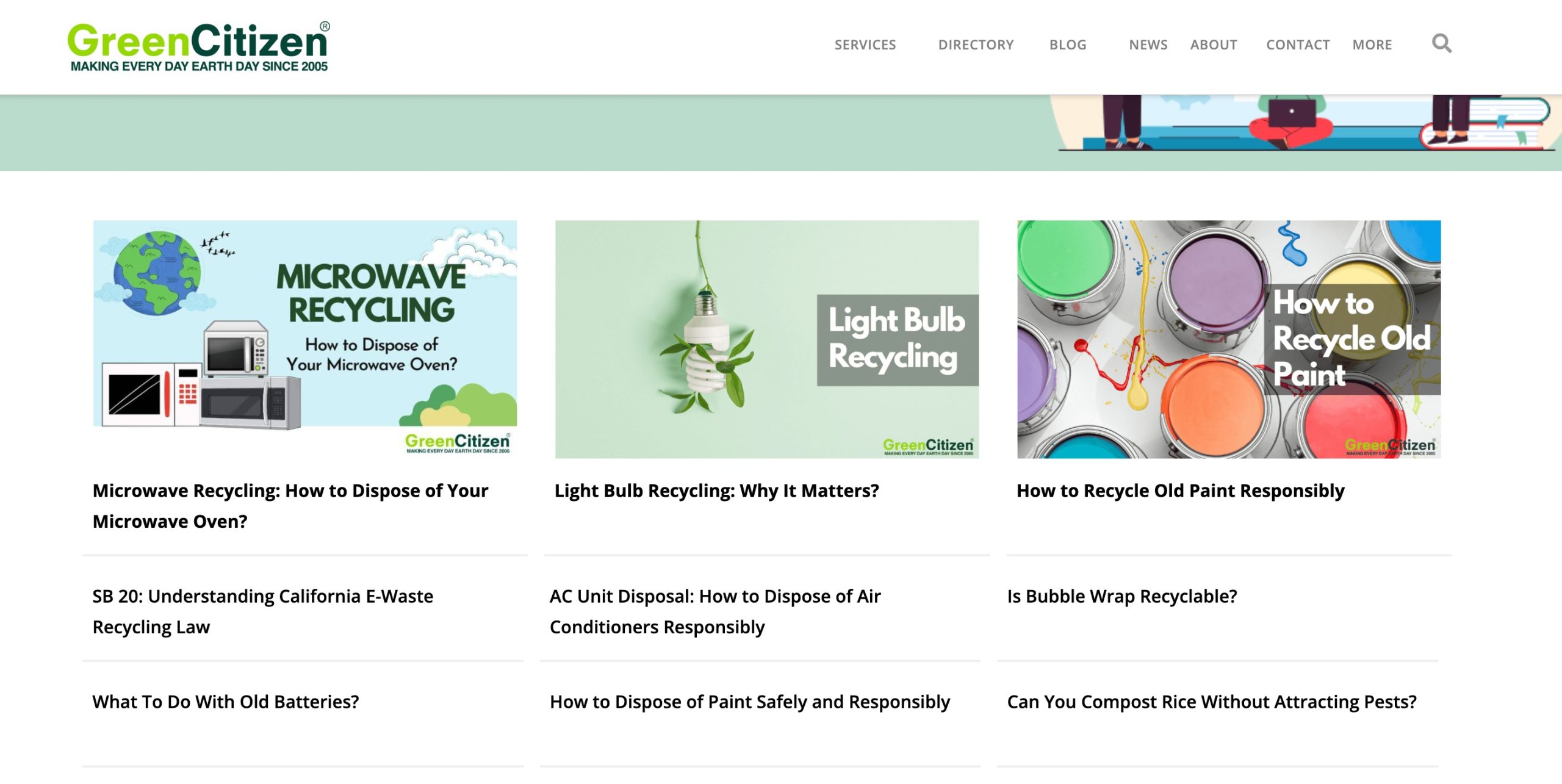
This helps build relevance for your audience and improves your chances of appearing in search results when people look for related topics.
2.2 Have a Brandable Domain
A brandable domain name is one that goes beyond just describing your blog’s purpose or keywords – it’s unique, memorable, and stands out from the crowd.
A brandable domain doesn’t have to be literal or generic; instead, it should evoke a feeling, be descriptive, and align with your brand’s identity.
For instance, ‘google.com’ doesn’t relate to search engines, but over time, it has become synonymous with searching the web. The name is short, catchy, and brandable, making it easy to remember and distinguish from other services.

When creating a brandable domain name for your blog, aim for something representing your brand’s voice and personality. It should be short, simple, descriptive, and able to grow with your blog as it expands.
For instance, if you’re starting a fashion blog, instead of choosing something generic like ‘FashionBlog.com,’ consider something more creative like ‘GlamHeaven.com.’
2.3 Keep it Short, Simple, and Memorable
When you choose a domain name, simplicity is key.
A simple, short, and memorable domain name is not only easier for visitors to type and share but also sticks in their minds, leading to higher brand recall and repeat visits.
One important rule when you choose a domain name is to avoid complicated words, numbers, or hyphens. These elements can confuse visitors and lead to errors when typing the domain.
For instance, if someone wants to visit ‘My-Blog4You.com,’ they might forget the hyphen or the number and end up on a different site.
Try to keep your domain name under 15 characters, excluding the extension. A brief and catchy name is easier to remember and type, increasing the likelihood that the audience will return to your site.
For instance, ‘BuzzFeed.com’ is a short, memorable domain that instantly tells you what the site offers: engaging, buzz-worthy content.

2.4 Keep It Below Four Syllables
Keeping your domain name under four syllables is a smart strategy for creating a name that is easy to say, remember, and type.
Longer names can feel cumbersome and are harder to recall, while shorter names which have less syllables create a smoother experience for users.
For instance, ‘Rank Math’ has two syllables: Rank and Math, and hence, it is easier to pronounce, type, and remember.
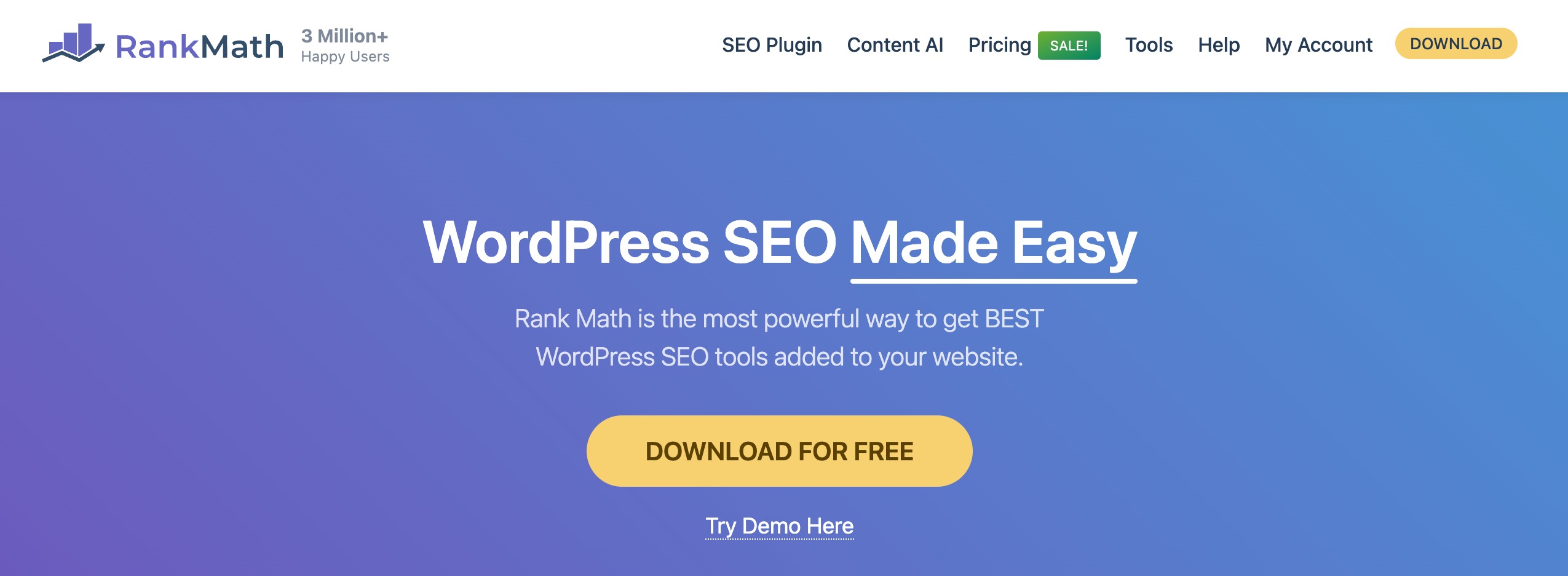
On the contrary, a long domain name, like ‘SuperAmazingTechnologyBlog.com’ is difficult to remember and type.
A concise name reduces the risk of spelling errors, especially when your visitors hear it spoken aloud.
Keeping your domain name under four syllables is a small detail that can greatly impact how well your blog is received and how easily visitors can find it.
2.5 Beware of Double Meaning
When you choose a domain name, it’s essential to be aware of double meanings.
A domain name that seems straightforward at first glance can unintentionally convey a different or inappropriate meaning, confusing your audience.
This is especially important because domain names lack spaces, making it easy for words to blur together and create unintended interpretations.
For instance, the domain ‘speedofart.com’ can be a website intended to showcase art. However, when the words are read together, they can be mistakenly interpreted as ‘Speedo Fart,’ which gives off an unprofessional and humorous meaning that detracts from the site’s intended message.
To avoid such pitfalls, carefully analyze your domain names for any unintended messages. Try getting feedback from others who may spot potential issues you hadn’t considered.
Tools that generate domain name ideas should also be used with caution, as they may not always account for these suggestions.
2.6 Avoid Hyphens and Numbers
When you choose a domain name, it’s best to avoid hyphens and numbers, as they can make your web address harder to remember, type, and share.
Hyphens can make a domain name harder to communicate verbally. If you were to tell a friend about a blog with the domain ‘my-cooking-blog,’ you would have to clarify the presence of hyphens. Visitors are likelier to forget the hyphen or mistype the URL, leading them to the wrong site or causing frustration.
Similarly, numbers can cause confusion, especially when it’s unclear whether the number should be written as a digit or spelled out. For instance, a blog with the domain ‘FiveStarRecipies.com’ can be typed incorrectly as ‘5StarRecipies.com’ or vice versa.

So, it’s important to avoid hyphens and numbers when you choose a domain name to make it more user-friendly and professional.
2.7 Scalability
Scalability is another factor to consider when you choose a domain name.
A scalable domain name allows you to expand your content offerings or business without needing to rebrand or switch domains, which can disrupt your audience and SEO efforts.
For instance, if you start a blog with the domain ‘FitnessTipsForTeens.com,’ it locks you into a very specific niche – content for teenagers interested in fitness. While that may work in the beginning, what if you later want to broaden your focus to include fitness advice both for adults and seniors?
Your original domain will not fit, and you’d either have to stick with a narrow audience or rebrand, which can confuse your readers and harm your site’s visibility.
On the other hand, choosing a scalable domain name like ‘FitLife.com’ allows for future flexibility. While you may initially target teenagers, the name is broad enough to later include fitness for a wider range of audiences, from beginners to fitness enthusiasts of all ages.
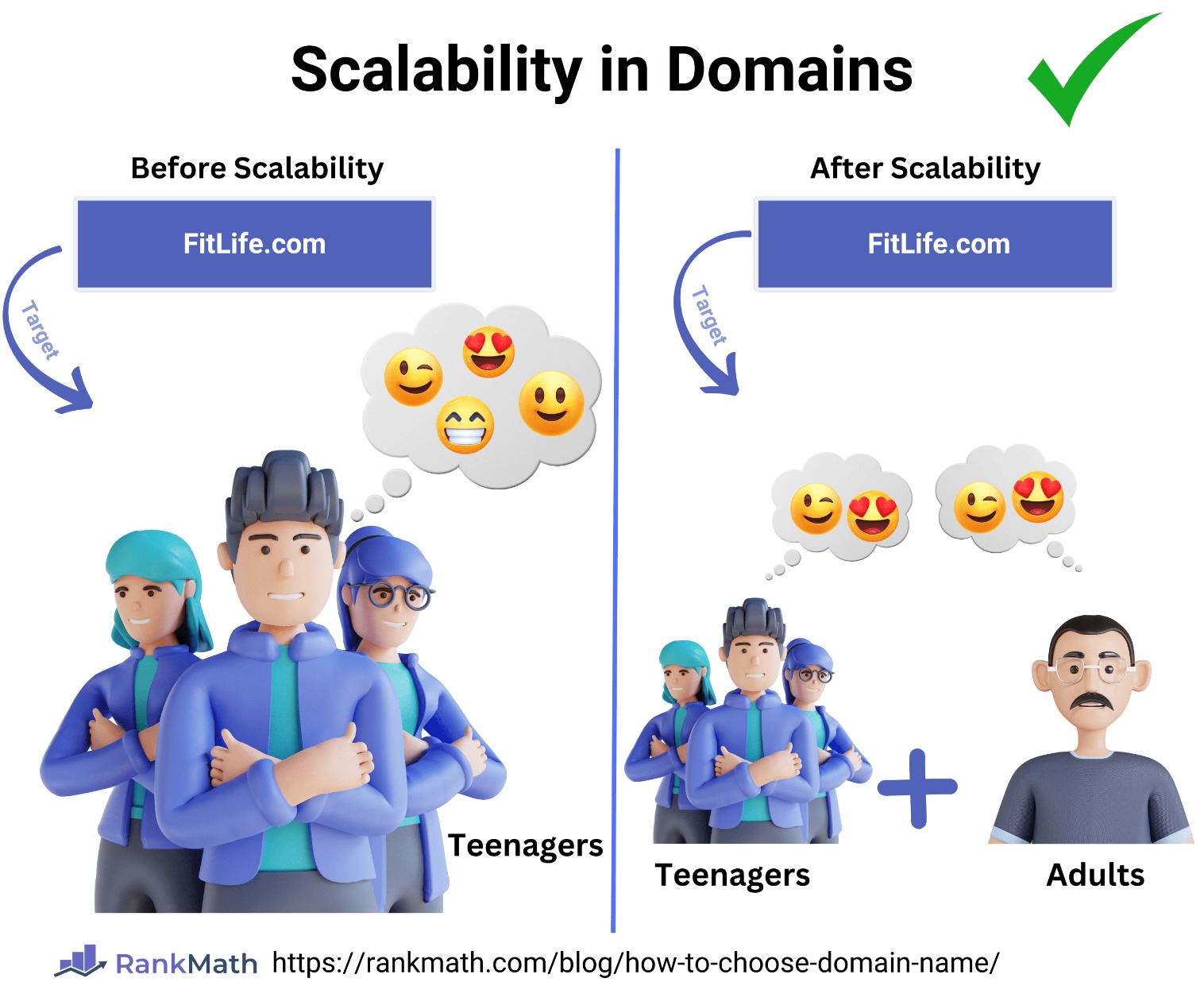
A scalable domain leaves room for growth without limiting the scope of your content.
2.8 Go for a ‘.com’ Extension
Opting for a ‘.com’ extension is the best choice for several reasons. The ‘.com’ extension is the most widely recognized and trusted domain suffix, giving your blog instant credibility.
One of the key advantages of a ‘.com’ domain is its global appeal. While there are many other extensions available, such as ‘.net,’ and ‘.org,’ and industry-specific extensions like ‘.blog’ or ‘.co,’ ‘.com’ remains the most familiar.
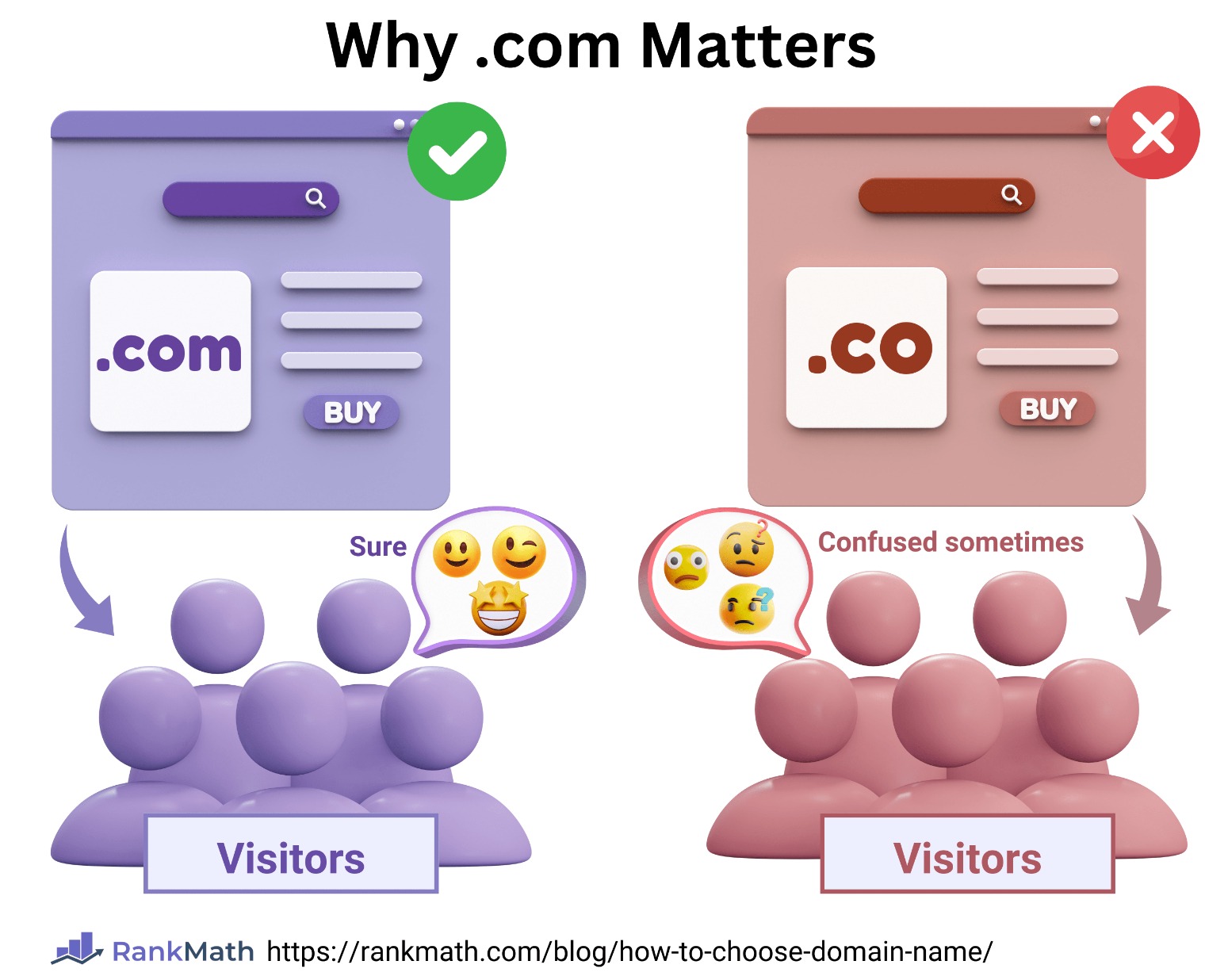
For instance, if your blog’s address is ‘AwesomeBlog.co’, visitors may accidentally type ‘AwesomeBlog.com’ instead, which can lead them to an unrelated or competing site.
Successful companies and brands almost always secure a ‘.com’ domain for this very reason. Using a ‘.com’ extension is a smart decision because it offers universal recognition and trust and reduces the risk of your visitors landing on the wrong site.
2.9 Avoid Legal Conflicts
When you choose a domain name for your blog, it’s important to avoid legal issues, particularly those involving trademarks.
Trademarks protect a brand’s identity and intellectual property, and if you unintentionally include a trademarked word or phrase, the rightful owner can file a lawsuit against you.
For instance, if you use a term like ‘Nike’ in your domain, even in a different industry, you risk infringing on the company’s trademark rights. This can lead to giving up your domain name, paying fines, or even facing further legal consequences.
So, before purchasing a domain name, it’s essential to check whether the name you want is already trademarked. You can do this by searching government databases like the United States Patent and Trademark Office (USPTO) or using online tools that allow you to search for registered trademarks globally.
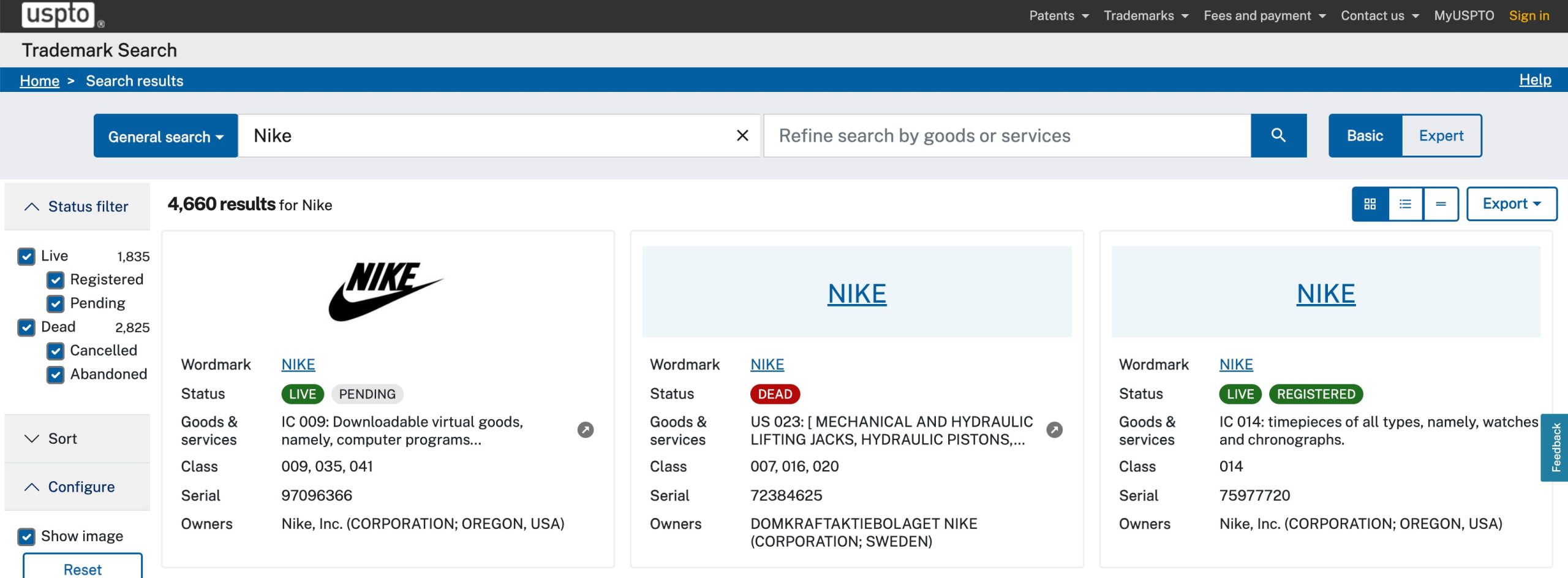
To protect yourself, it’s best to use original or modified names that don’t infringe on trademarks. Creating a unique name not only helps you avoid legal issues but also makes your brand more distinct.
In addition to originality, consider securing a trademark for your own domain name if it’s unique and part of a growing brand. This gives you legal protection and ensures no one else can use your name without consequences.
3 Conclusion
Choosing a domain name is an essential step in building a successful blog.
A well-chosen domain name can make your blog memorable, scalable, and easy to find, and it makes your blog shareable, ultimately helping you build a stronger online presence.
So, take the time to get it right – as it plays a key role in the growth and future of your blog.
If you like this post, let us know by Tweeting @rankmathseo.
![How to Choose a Domain Name for Your Blog [9 Easy Steps]](https://rankmath.com/wp-content/uploads/2024/10/How-to-Choose-a-Domain-Name.png)